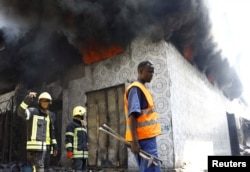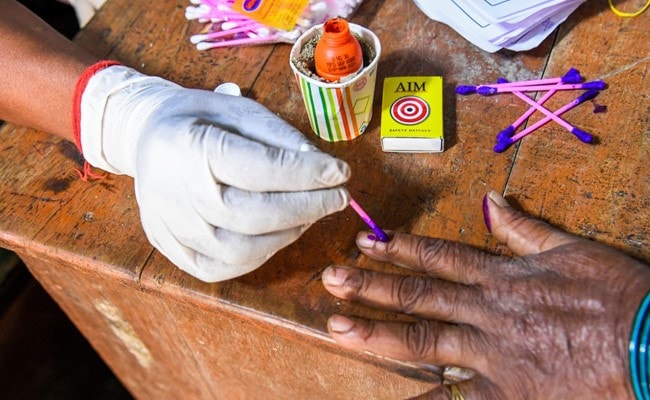Explosives may have caused a fire that burned part of Bakala, Mogadishu’s largest market, on Sunday, an official and witnesses in the Somali capital said.
The explosion, which occurred around 5 a.m. local time, killed at least one person and destroyed several stores selling electronics and everything from coffee to shoes and clothes, authorities said.
Frequent fires have devastated several of Somalia’s major markets, largely caused by power failures. But Mogadishu officials said they suspected explosives detonated at the store may have caused the recent fires.
No one has yet claimed responsibility, but officials said they suspected al-Shabab militants were behind the attack. Al-Shabaab has yet to officially comment on the Bakara market fire. Al-Shabaab has for years opposed shop and street surveillance systems that could be used to identify members assisting attacks.
Al-Shabaab regularly carries out assassinations and attacks against government workers, facilities, security personnel and African Union forces supporting the Somali government. For nearly 20 years, al-Shabaab has been working to overthrow the government and establish its own rule based on its version of Sharia law.
Businessman Hassan Abdi Ahmed, who was performing morning prayers at a mosque in the market, said he heard four explosions before the fire broke out.
“I was at Baccarat Market; a [explosion] It happened once nearby, then we heard another, a third, a fourth,” said Ahmed, chairman of the Bakara Market Chamber of Commerce.
“Three of them were far away, far away in the market when the fire started; one was nearby. This is being confirmed by everyone. The weather was clear. It’s not a secret.”
Mogadishu’s deputy mayor for security and political affairs, Mohamed Ahmed Diriyah, said the government was investigating the cause of the accident but pointed to Al-Shabaab as a suspect.
“There are murderers called Khawarij who are against the stability of this country and when their power is weakened, they will try everything they can to undermine it,” Diriyah said while speaking to the media in the Bakara market.
Khawarij, or heretic, is a term used by the Somali government to refer to al-Shabab.
Diriyah said the deceased approached the explosives left outside the store, mistaking them for rubbish.
Some businessmen and store owners told the media anonymously that they have been receiving threatening calls from self-proclaimed al-Shabaab militants and they objected to the installation of surveillance cameras in stores.
Somalia’s security services recommend businesses install cameras. Suspects of Al-Shabaab attacks have previously targeted streetlights and CCTV cameras installed on major roads and intersections.
“They fought against the cameras because they didn’t want to be seen,” Diriyah said.
“It’s never going to stop; we’re going to work on this. We want people to be vigilant.”
Last month, at least eight people were killed and 19 injured in a series of bombings at a chain of electronics stores in the same market. Authorities blame Al-Shabaab.
Follow us on Google news ,Twitter , and Join Whatsapp Group of thelocalreport.in

















